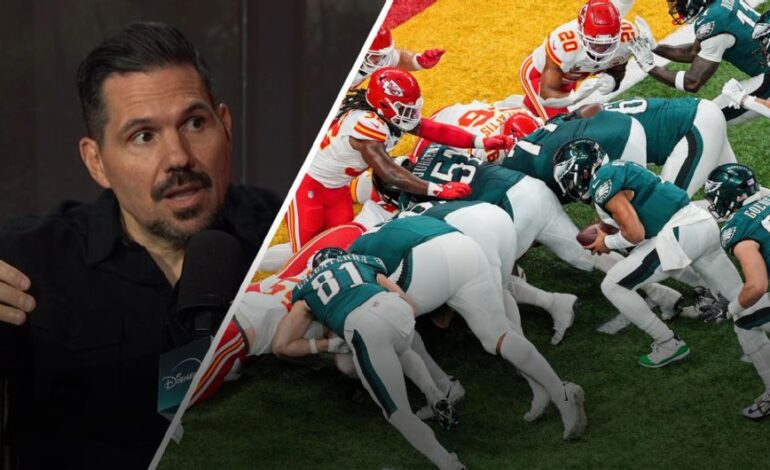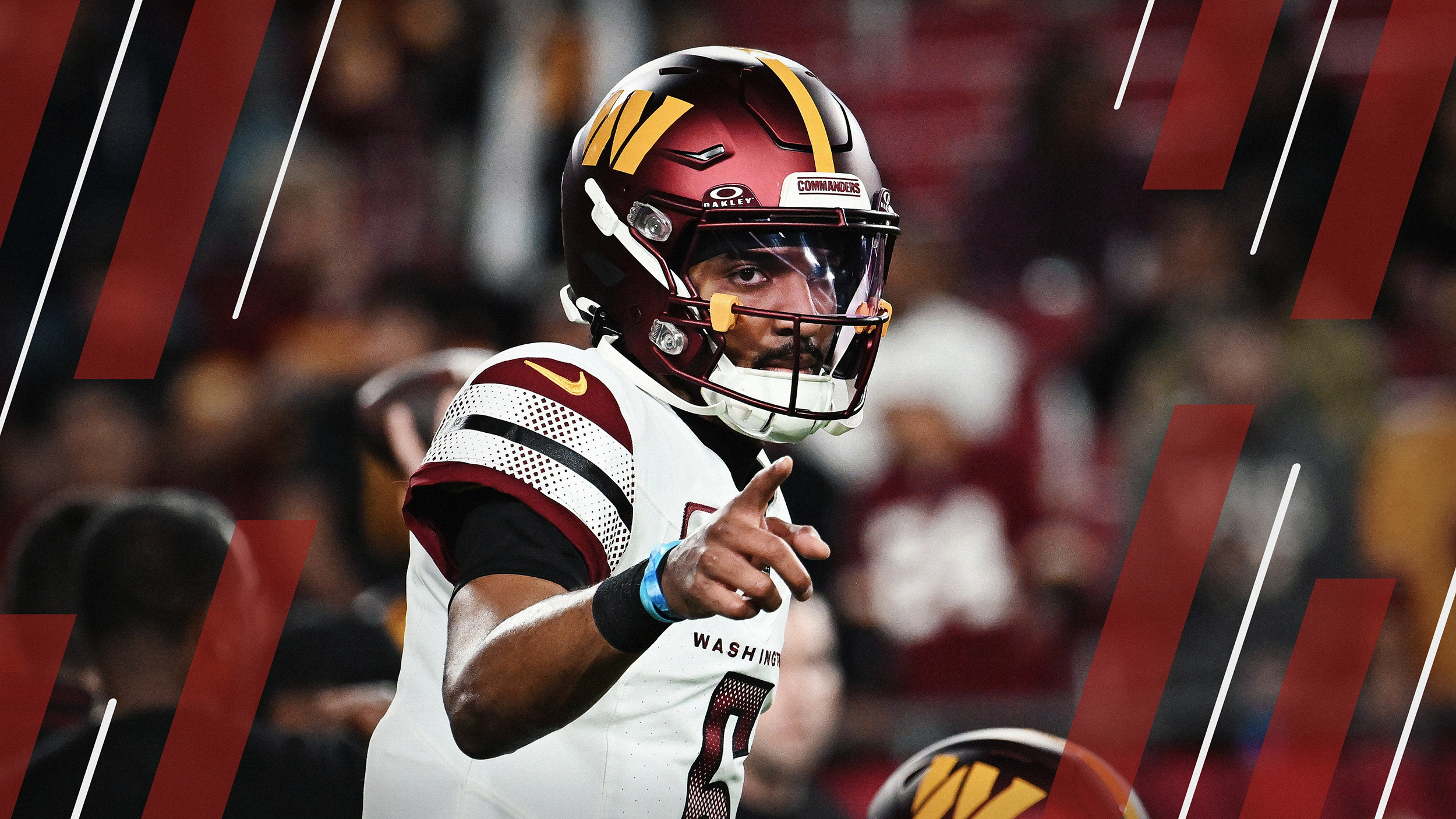NFL Struggles to Curb Illegal Tactics Against Eagles’ Tush Push

The NFL faces challenges enforcing its rules as teams devise illegal tactics to counter the Philadelphia Eagles’ controversial “tush push” play. Observers noted a missed false start during the Eagles’ offensive play against the Kansas City Chiefs in Week 2, reigniting discussions about the league’s ability to regulate this increasingly contentious strategy.
The Eagles, known for their effectiveness with the tush push, have encountered defenses employing a tactic known as “disconcerting signals.” This is when defensive players intentionally mimic the quarterback’s cadence to confuse the offensive line, potentially drawing them into false starts. According to the NFL rulebook, this results in a 15-yard penalty; however, it has not been called since 2017.
An analytics expert affiliated with an NFL team indicated that the Chiefs may have committed such a penalty during the Eagles’ third-and-1 play on their own 25-yard line, with 5:29 left in the game. In the broadcast, Eagles quarterback Jalen Hurts shouted, “Delta set!” while a Chiefs player yelled, “Go go!” This interference likely contributed to the confusion surrounding the play.
Under Rule 12, Section 3 of the NFL rulebook, using acts or words designed to disconcert the offensive team is prohibited and should result in immediate stoppage of play by officials. Despite this, a source within the league’s officiating department revealed to ESPN that disconcerting signals are not currently a priority for officials, primarily due to the difficulty of discerning such actions amidst crowd noise.
If officials had detected intentional confusion during the Eagles’ play, they could have penalized the Chiefs, granting the Eagles a first down at their own 40-yard line. ESPN rules analyst Russell Yurk noted that this particular unsportsmanlike conduct penalty is seldom enforced due to its subjective nature.
The Chiefs’ coach, Andy Reid, expressed his frustration after the game, highlighting the importance of calling early movement. Since 2022, the Eagles have been flagged for three false starts and three offensive offsides on tush push plays, raising questions about the effectiveness of officiating in these situations.
Eagles left tackle Jordan Mailata criticized the Chiefs for their tactics, claiming they were also mimicking the cadence to induce false starts. He noted that this practice is now commonplace across the league, contributing to the challenges faced by offenses.
An incident in last year’s playoffs further illustrates the impact of disconcerting signals. During the divisional round against the Los Angeles Rams, Eagles right tackle Lane Johnson was called for a false start after a Rams defender imitated Hurts’ cadence, leading to a critical shift in momentum that cost the Eagles a potential touchdown.
Defensive players, including Rams defensive end Kobie Turner, confirmed that mimicking Hurts’ cadence is a tactic they have employed. They study previous games to find ways to disrupt the offense, which has led to an intense preparation routine for the Eagles, including simulating disruptive voices in practice.
With a focus on maintaining clarity amid the chaos of the line of scrimmage, the Eagles have developed strategies to differentiate between Hurts’ voice and the imitations used by defenses. The team practices recognizing specific cues from Hurts’ cadence to avoid falling victim to these tactics.
As the NFL grapples with the implications of the tush push, it is clear that the league’s officiating challenges are compounded by teams’ clever adaptations. Some teams are even submitting inquiries about the play, arguing that it should be classified as a dead play due to the penalties incurred.
In a recent training video, NFL Vice President of Officiating Training and Development Ramon George reiterated the need for officials to pay close attention to potential penalties during tush push plays. He acknowledged the complexity of officiating this play, particularly due to the close formations that make it difficult to distinguish between legal and illegal movements.
The league’s efforts to ban the tush push fell short during the owners’ meeting in May, reflecting a broader reluctance to eliminate the play. Former NFL down judge Jerry Bergman stated that officiating this play remains a challenge, particularly due to the evolution of the rules surrounding player alignment and contact.
As teams continue to experiment with tactics to counter the tush push, the NFL is left navigating the intricacies of its own rules. Discussions about potential future proposals to ban the play may emerge, especially considering the ongoing difficulties faced by officiating crews.
With the Eagles and their opponents constantly adapting, the tussle between offense and defense may continue to fuel the conversation surrounding the tush push and the league’s ability to maintain fair play on the field.






